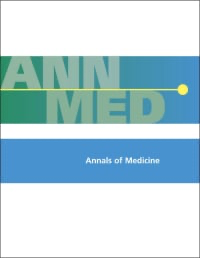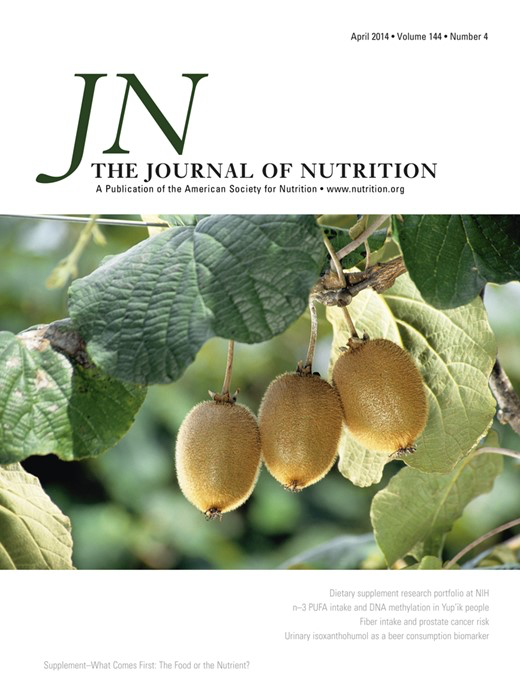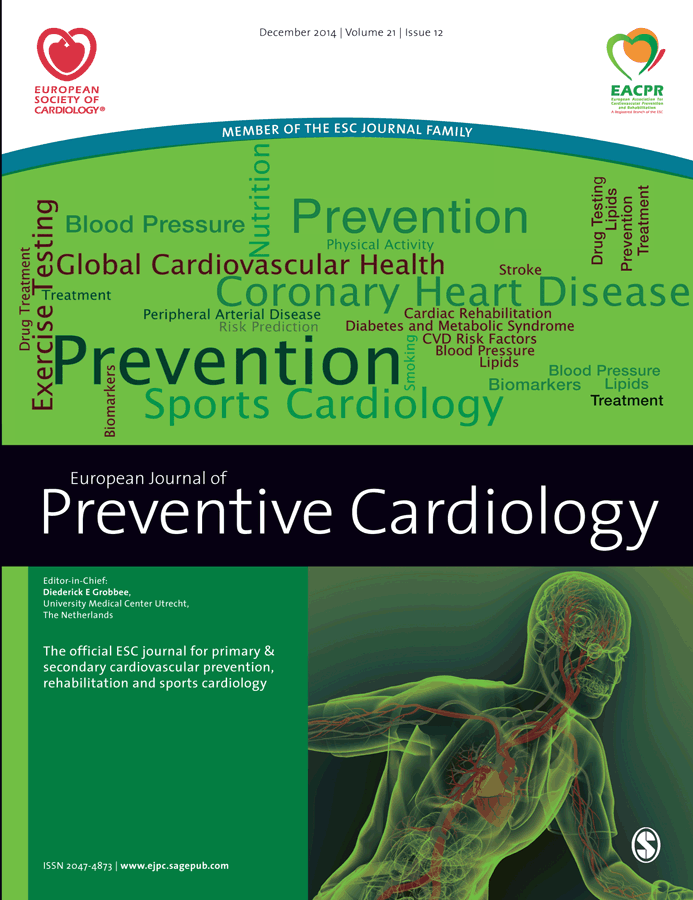Dairy Products
How to submit an article:
- Registered users can submit any published journal article that has a unique DOI (Digital Object Identifier) name or link to Research Hub.
- For example, you can paste the full DOI link:
https://doi.org/10.1109/5.771073or just the DOI name:10.1109/5.771073into the field above and click submit. - The person who is first to submit a valid article to Research Hub will forever be credited for it, and every article submission earns you +6 Research Points.
Published research studies are articles that present the findings of original research that has undergone a peer-review process and has been made publicly available in scholarly journals, books or other media.

The association between breast cancer and consumption of dairy products: a systematic review
2023 Apr 20 Annals of Medicine Arafat HM, Omar J, Shafii N, Naser IA, Al Laham NA, Muhamad R, et al.
Systematic Review Breast Cancer DairyConsuming dairy products might reduce the risk of developing breast cancer.

Cross-Sectional Associations between Dietary Fat-Related Behaviors and Continuous Metabolic Syndrome Score among Young Australian Adults
2018 Jul 26 Nutrients Sun Y, Magnussen CG, Dwyer T, Oddy WH, Venn AJ, Smith KJ
Clinical Study Dietary FatsYoung adults using low-fat oily dressings and certain cooking oils are linked to higher metabolic risks without direct relation to their consumptions of low fat dairy, meat, or cooking fats.

Total and Full-Fat, but Not Low-Fat, Dairy Product Intakes are Inversely Associated with Metabolic Syndrome in Adults
2016 Jan The Journal of Nutrition Drehmer M, Pereira MA, Schmidt MI, Alvim S, Lotufo PA, Luft VC, et al.
The study concludes that there is a graded inverse association between Metabolic Risk Score (MetScore) and total dairy intake as well as full-fat dairy intake, after adjusting for various factors. However, this association is not observed with low-fat dairy intake. The inverse associations with MetScore were no longer present after additional adjustments for dairy-derived saturated fatty acids, suggesting that the beneficial effects of total and full-fat dairy on metabolic syndrome may be mediated by these fatty acids. The findings do not support dietary recommendations to avoid full-fat dairy intake.
Cohort Study Clinical Study Dairy Low-Fat Dairy Full-Fat Dairy
Low-fat and high-fat dairy products are differently related to blood lipids and cardiovascular risk score
2013 Sep 03 European Journal of Preventive Cardiology Kai SHY, Bongard V, Simon C, Ruidavets JB, Arveiler D, Dallongeville J, et al.
Clinical Study Low-Fat Dairy Lipids Dairy Products CVDs High-Fat Dairy Cardiovascular Disease High-Fat Diary Products Cardiovascular Risk CVDResearch insights are moderated by the Research Hub team and offer an at-a-glance overview of interesting research findings.

2023 Annals of Medicine
Consuming dairy products might reduce the risk of developing breast cancer.
Systematic Review Breast Cancer Dairy
The association between breast cancer and consumption of dairy products: a systematic review
Arafat HM, Omar J, Shafii N, Naser IA, Al Laham NA, Muhamad R, et al.

2018 Nutrients
Young adults using low-fat oily dressings and certain cooking oils are linked to higher metabolic risks without direct relation to their consumptions of low fat dairy, meat, or cooking fats.
Clinical Study Dietary Fats
Cross-Sectional Associations between Dietary Fat-Related Behaviors and Continuous Metabolic Syndrome Score among Young Australian Adults
Sun Y, Magnussen CG, Dwyer T, Oddy WH, Venn AJ, Smith KJ
Review Articles
Review articles summarise and critically evaluate the current state of research on a specific topic or field by synthesising multiple primary research studies.
Clinical Trials
Clinical trials are research studies that involve people and are conducted to evaluate the safety and efficacy of new treatments or interventions, such as drugs, medical devices, or behavioural therapies.
Study Protocols
Published study protocols are detailed plans that outline the objectives, methodology, statistical analyses, and organisation of a research study that have been made publicly available for others to review and use as a reference.
Presentation Slides

Systematic Review
Consuming dairy products might reduce the risk of developing breast cancer.
Arafat HM, Omar J, Shafii N, Naser IA, Al Laham NA, Muhamad R, Al-Astani TAD, Shaqaliah AJ, Shamallakh OM, Shamallakh KM, Abusalah MAH

Clinical Study
Young adults using low-fat oily dressings and certain cooking oils are linked to higher metabolic risks without direct relation to their consumptions of low fat dairy, meat, or cooking fats.
Sun Y, Magnussen CG, Dwyer T, Oddy WH, Venn AJ, Smith KJ
Executive Summary
Write an executive summary in the form of a blog article on the topic of "Research into Chinese medicine treatment for Dairy Products" summarising the research below and using language that can be easily understood by patients and avoiding medical jargon using a professional and caring tone of voice.
Write an executive summary in the form of a blog article on the topic of "Researched Chinese medicine treatments for Dairy Products" summarising the research below in an objective and easy to understand way, and using language that can be easily understood by patients. Group the article into Chinese medicine treatments first, followed by nutrition and other treatments. Avoid using medical jargon and use a professional and caring tone of voice.
Write me a concise but easy to understand executive summary on the topic of "Chinese medicine treatments for Dairy Products" based on the following research that I will give you. Your summary should be 2 paragraphs long in Australian English spelling and include references to the studies.
A Systematic Review published in 2023 in the journal Annals of Medicine found that Consuming dairy products might reduce the risk of developing breast cancer. The researchers conducted a systematic literature review where they scrutinized various databases for studies published in English up to January 2022. They began with 82 articles, but only 18 met their pre-set inclusion criteria. The studies varied in type - nine were prospective, seven were retrospective, and two were cross-sectional. The results indicated an inverse relationship between dairy consumption and the risk of developing breast cancer. However, the effect of different types of dairy products and the exact dose-response relationships on breast cancer risk remains unclear. Nevertheless, this review provides a foundation for considering dairy products in preventive strategies to reduce breast cancer occurrence.
A Clinical Study published in 2018 in the journal Nutrients found that Young adults using low-fat oily dressings and certain cooking oils are linked to higher metabolic risks without direct relation to their consumptions of low fat dairy, meat, or cooking fats. The research engaged 2071 participants aged between 26 to 36 years old to report their dietary behaviors like how often they removed visible fat from meat, their intake of low-fat dairy products, and how frequently they used different cooking fats, from 2004 to 2006. The participants also had their blood pressure, weight, and height measured, while a fasting blood sample was taken to create a continuous metabolic syndrome (cMetSyn) score using sex-specific principal component analysis applied to normalized risk factors. This cMetSyn score is designed to depict higher risks with higher scores. The findings showed that the mean cMetSyn score had positive correlations with those participants who consumed low-fat oily dressings and used canola or sunflower oil for cooking. Interestingly, the researchers found no significant associations between the cMetSyn score and the behaviors of trimming fat from meat, cooking with olive oil or butter, or taking low-fat dairy products. This indicates that metabolic risk among young adults does not necessarily correlate with compliance to traditional fat-related dietary recommendations.
Moderation Tools
Topic
Sign In
Users not signed in are limited to viewing the 5 most recent items of content.
Interestingly this study found that "none of the lipid parameters was significantly associated with the consumption of high-fat dairy products". —Jinnan C 17 Dec 2023